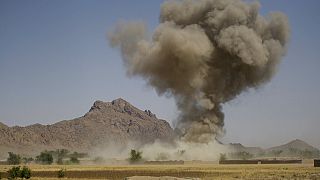Ethiopia
Known as the Cooperative Framework Agreement (CFA), the treaty aims to ensure equitable utilization and sustainable management of the world's longest river.
Several upstream countries have long argued that the downstream states of Egypt and Sudan had been unfairly allocated greater rights over the river Nile by colonial-era agreements.
Seven countries including Ethiopia, Rwanda, South Sudan, Uganda, Tanzania, and the Democratic Republic of the Congo have endorsed the CFA, which became effective on Sunday, October 13.
Cairo and Khartoum have rejected it.
In a statement Sunday, the Nile Basin Inititaive (NBI), a grouping of riparian states said that the CFA aims to rectify historical imbalances in access to the Nile’s waters.
“The CFA recognizes the legitimate needs of all Nile Basin states and commits us to the equitable sharing of these waters in a manner that promotes sustainable development. This agreement represents hope for the future, where each country can grow and prosper without depriving others of the same opportunity,” the NBI statement read.
The Nile River has long been a focal point of geopolitical tension in eastern Africa, particularly between Egypt and Ethiopia.
The friction rose when Addis Ababa built a large hydro power project on the Blue Nile, which Cairo said would hurt its water security.











01:49
Sudanese refugees in Chad face deepening humanitarian crisis
00:59
Several killed in road crash in Egypt’s governorate of Menofia
Go to video
UN warns of escalating humanitarian catastrophe in Sudan amid ongoing conflict
Go to video
China, Egypt FMs discuss Middle East escalation in phone call
01:41
UN warns of looming famine in Sudan, Gaza and 3 other global hunger hotspots
01:49
UN warns of impact Sudan's humanitarian crisis is having on Chad